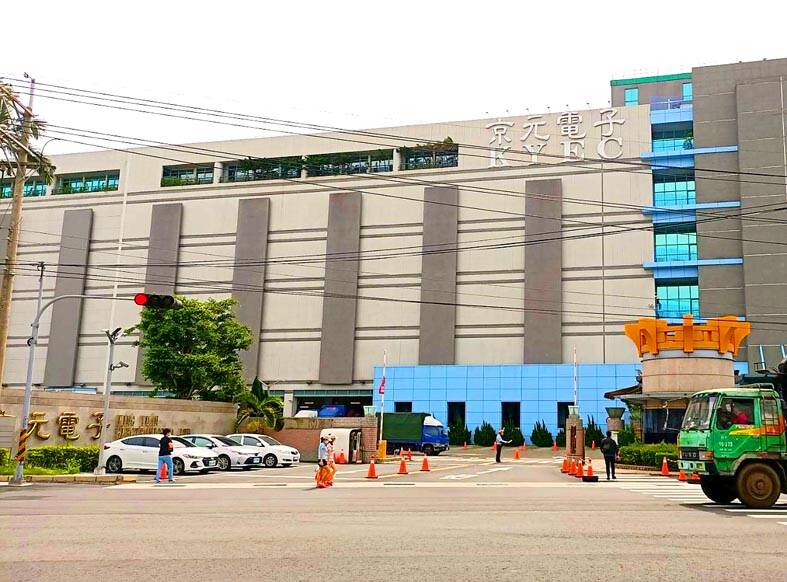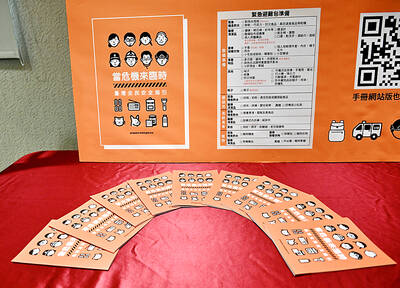Chip testing and packaging service provider King Yuan Electronics Co (京元電子) yesterday said it plans to divest its Chinese subsidiary amid heightened geopolitical tensions and a US-China trade dispute that led to a drastic shuffle of the global semiconductor supply chain landscape.
Intensifying competition in the Chinese chip market and changes in the ecosystem also prompted King Yuan to decide to exit China, the company said in a statement.
That decision is part of the company’s long-term growth strategies and financial resource allocations, it said.

Photo: Peng Chien-li, Taipei Times
King Yuan said it would shift its investment to Taiwan to catch up with fast-growing demand for chips used in mobile devices, vehicles, Internet of Things, high-performance computing (HPC) and artificial intelligence (AI) devices.
The company’s board of directors has approved increasing its capital expenditure this year to NT$12.28 billion (US$377 million), a rise of about 75 percent from an earlier NT$7 billion budget, to satisfy demand for AI and HPC devices. King Yuan is considered a major chip testing service provider to Nvidia Corp’s AI chips.
King Yuan said it plans to sell its 92.16 percent holding of King Long Technology (Suzhou) Ltd (京隆科技) in a 4.885 billion yuan (US$674 million) deal to a number of companies including King Legacy Investments Ltd, Dense Forest Ltd and other Chinese firms.
The deal would bring a NT$16.6 billion capital influx to Taiwan, the firm said.
King Yuan said it plans to use the capital to fund domestic factory and equipment expansion, and to invest in advanced testing equipment and research-and-development efforts.
The Hsinchu-based company said it expects to register a NT$3.83 billion asset gain from the share sale.
The company plans to allocate NT$3.67 billion from the gain to distribute an extra cash dividend of NT$1.5 per share next year and in 2026.

One of two tropical depressions that formed off Taiwan yesterday morning could turn into a moderate typhoon by the weekend, the Central Weather Administration (CWA) said yesterday. Tropical Depression No. 21 formed at 8am about 1,850km off the southeast coast, CWA forecaster Lee Meng-hsuan (李孟軒) said. The weather system is expected to move northwest as it builds momentum, possibly intensifying this weekend into a typhoon, which would be called Mitag, Lee said. The radius of the storm is expected to reach almost 200km, she said. It is forecast to approach the southeast of Taiwan on Monday next week and pass through the Bashi Channel

NO CHANGE: The TRA makes clear that the US does not consider the status of Taiwan to have been determined by WWII-era documents, a former AIT deputy director said The American Institute in Taiwan’s (AIT) comments that World War-II era documents do not determine Taiwan’s political status accurately conveyed the US’ stance, the US Department of State said. An AIT spokesperson on Saturday said that a Chinese official mischaracterized World War II-era documents as stating that Taiwan was ceded to the China. The remarks from the US’ de facto embassy in Taiwan drew criticism from the Ma Ying-jeou Foundation, whose director said the comments put Taiwan in danger. The Chinese-language United Daily News yesterday reported that a US State Department spokesperson confirmed the AIT’s position. They added that the US would continue to

The number of Chinese spouses applying for dependent residency as well as long-term residency in Taiwan has decreased, the Mainland Affairs Council said yesterday, adding that the reduction of Chinese spouses staying or living in Taiwan is only one facet reflecting the general decrease in the number of people willing to get married in Taiwan. The number of Chinese spouses applying for dependent residency last year was 7,123, down by 2,931, or 29.15 percent, from the previous year. The same census showed that the number of Chinese spouses applying for long-term residency and receiving approval last year stood at 2,973, down 1,520,

EASING ANXIETY: The new guide includes a section encouraging people to discuss the threat of war with their children and teach them how to recognize disinformation The Ministry of National Defense’s All-Out Defense Mobilization Agency yesterday released its updated civil defense handbook, which defines the types of potential military aggression by an “enemy state” and self-protection tips in such scenarios. The agency has released three editions of the handbook since 2022, covering information from the preparation of go-bags to survival tips during natural disasters and war. Compared with the previous edition, released in 2023, the latest version has a clearer focus on wartime scenarios. It includes a section outlining six types of potential military threats Taiwan could face, including destruction of critical infrastructure and most undersea cables, resulting in